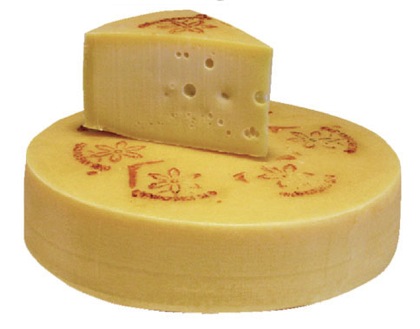I’ve been putting off writing about cheese because I’ve been afraid of what I might find. Its been 65 days since I started on my Plant-based diet and I’ve found that I’m not so much missing eating meat but I am eating more cheese. I know that eventually I’ll need to remove dairy from my diet to accomplish my goal of cleaning my arteries but cheese provides so much to a dish that you can’t get any other way, that I’m afraid the cravings might start.
For those who just have to know about the most expensive stuff in the world. I must admit it is interesting to see what people will pay the big bucks for. The featured picture is a picture of deer milk cheese. It is only $500/lb, but the most expensive cheese in the world is Pule cheese, made from donkey milk. It sells for $616/lb. -pictured below.
History
Cheese is around 4000 years old on this planet. It is made from the milk of all animals but you’ll find it mostly made from cow milk. There are easily over 700 different popular cheeses in the world. Cheese can be found hard, semi-hard, semi-soft and soft. Most cheese is classified as vegetarian, but not vegan.
Serving and Storage Tips
from Cheese.com
- Unpasteurized cheese with a range of flavours should not be sliced until purchase otherwise it will start to lose its subtlety and aroma.
- Keep the cheese in conditions in which it matures. Hard, semi-hard and semi-soft cheeses are stored in the temperatures from around 8 – 13 C.
- Keep the cheese wrapped in the waxed paper and place it in a loose-fitting food-bag not to lose humidity and maintain the circulation of air.
- Wrap blue cheeses all over as mould spores spread readily not only to other cheeses but also to everything near.
- Chilled cheeses should be taken out of the refrigerator one and a half or two hours before serving.
- Cheeses contain living organisms that must not be cut off from air, yet it is important not to let a cheese dry out.
- Do not store cheese with other strong-smelling foods. As a cheese breathes it will absorb other aromas and may spoil.
- Wrap soft cheeses loosely. Use waxed or greaseproof paper rather than cling film.
- Let cold cheese warm up for about half an hour before eating to allow the flavour and aroma to develop.
Nutritional Facts
This is the part I’ve been afraid of. Lets take cheddar cheese as an example.
Cheddar cheese is very low on the Glycemic index. It has a load factor of 1 on a scale of 0 to 250, which means that it releases its energy into the blood stream on a slow, long term basis. Cheddar is also very low on the inflammation scale with a -120.
That was the good. The bad is that one ounce of cheddar cheese provides 113 calories, 92 of which are from fat and of the 9 grams of total fat, 6 grams are saturated fat. Worse than that is 10% of your daily intake of cholesterol will be in that one once of cheese (29 mg).
Cheddar does have 7 grams of protein per ounce and 20% of your daily calcium needs for a 2000 calorie diet.
Parmesan cheese – To show you the difference between hard cheese and even a semi-hard cheese like cheddar, lets look at parmesan which is one of the hardest cheeses.
The good is that Parmesan rates a “0” on the Glycemic load chart and a -7 on the Inflammation chart. It also contains a lot of phosphorus and calcium, as well as 10 grams of protein. But…
The bad isn’t quite as bad as with cheddar. Only 110 calories per ounce of which 64 are fat. It contains 7 grams of fat of which 5 grams are saturated. It only has 19 mg of cholesterol but a whopping 449 mg of sodium.
Conclusions
Be your own judge, but by what I’ve found here, it looks like cheese will not be in my future. If I find a miraculous cheese that you just can’t live with out, I’ll let you know. Until then, I’m a little depressed, – jughandle


